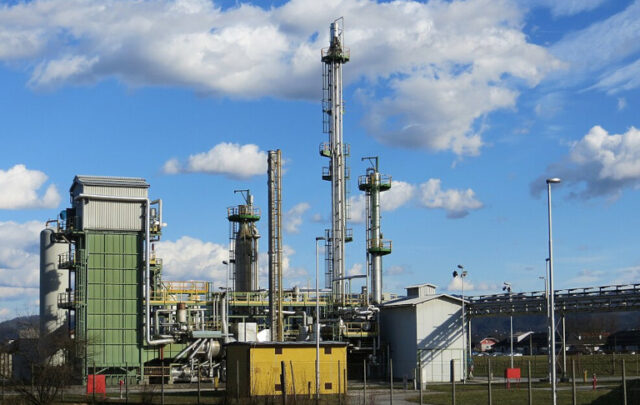Click on the headline (link) for the full text.
Many more articles are available through the Energy Bulletin homepage
Beyond the Barrel
The Oil Drum: $100 a Barrel Quickens the Beat
Marianne Lavelle, U.S. News & World Report
After the price of oil hit $100, I checked in with The Oil Drum, a Web-based community founded a couple of years ago to discuss energy and the future. The folks who gather at the Oil Drum, by and large, agree that we’re at or near “peak oil”-the moment when petroleum production will begin its inexorable decline.
This is not a site where people spout opinions on a world running out of oil. This is where geologists, physicists, and even social scientists post detailed charts and graphs and analyses on a world running out of oil. Here, you can read a technical paper on the state of depletion of Saudi Arabia’s Ghawar, the world’s largest oil field, or read periodic statistical updates on the status of worldwide production and how that has squared with the predictions.
You can also read postings on why the denial of an energy crisis is a conditioned response. And there’s peak-oil humor, as when a cartoon of a smiling pitcher serving up Kool-Aid accompanies one of the many examinations of the predictions of Cambridge Energy Resource Associates (CERA), the widely respected oil industry consulting firm, which has often issued assurances that petroleum supplies are adequate and that prices would ease.
I spoke with one of the Oil Drum’s editors, Nate Hagens, who worked at Salomon Brothers, Lehman Brothers, and ran a hedge fund (“I traded commodities but was oblivious to the greater energy picture”) until about four years ago, when he read several books about resource depletion that persuaded him to change paths. He quit the finance world and is now finishing up his Ph.D. in natural resources at the University of Vermont.
The Oil Drum averages about 40,000 page views a day, but Hagens says traffic is, “as you might guess, highly correlated with the price of oil.” He says, “It’s interesting-$100 is just 1 percent higher than $99, but all of the sudden, it gets people’s attention.” Here are excerpts of my conversation with Hagens. [Interview follows]
Marianne Lavelle, senior writer for U.S.News & World Report, has covered energy since California’s rolling blackouts and the simultaneous rise of two former oilmen to the White House
(7 January 2008)
Richard Heinberg on The Reality Report (Audio)
Jason Bradford, Reality Report
The Reality Report hosts Richard Heinberg, faculty member of New College of California, fellow of Post Carbon Institute, author of the books The Party’s Over, Powerdown, The Oil Depletion Protocol, and most recently Peak Everything. This program covers many of the topics in his latest book, which more than others considers the social implications of energy decline.
The program begins with a review of the connections between energy and society, drawing from the work of cultural anthropologist Marvin Harris. A discussion of relationship between climate change and fossil fuel depletion ensues. The program concludes by offering some perspective on how to cope psychologically with difficult information. Jason Bradford hosts The Reality Report, broadcast on KZYX&Z in Mendocino County, CA.
(8 January 2008)
People & Power – Peaked
Max Keiser, Al Jazeera English via YouTube
Is the world running out of oil? Max Keiser looks at the issue of peak oil and its consequences
Video Part 1 (10:22 minutes)
www.youtube.com/watch?v=KrjX4Nf_wGM
Video Part 2 (12:35 minutes)
www.youtube.com/watch?v=-sYLFqg2e3I
(6 January 2008)
Good coverage. Correspondent Max Keiser rides camels, ice skates in the desert and interviews many peak oil spokespeople like Robert Hirsch, Randy Udall, James Howard Kunstler, and Joerg Schindler (Energy Watch Group).
Submitted by Devlin Buckley.
Is oil supply at its peak?
Tyler Hamilton, The Star
“The peak in oil production does not signify `running out of oil,’ but it does mean the end of cheap oil, as we switch from a buyers’ to a sellers’ market.”
– Energy Bulletin’s “peak oil primer”
…”I just don’t think we’re going to see increases in conventional oil production any more,” Rubin says. “I think (peak oil) is here.”
So do citizens of a local group called Post Carbon Toronto, created in 2004 to “learn about peak oil and its consequences.”
The group holds a public meeting every month, and has for more than three years, to discuss what the city and country can do to avoid the local impact of what they believe is a certain global energy crisis.
Their concern is understandable. Peak-oil theory suggests that once we’ve passed peak production, rising demand combined with declining output will cause oil prices to soar, perhaps dramatically as the potential for conflict escalates in many oil-producing countries.
Daniel Lerch, author of Post Carbon Cities: Planning for Energy and Climate Uncertainty, says knowing the exact date of peak oil isn’t what’s important.
“What matters is that oil prices will become volatile and progressively higher when demand increases and supply can’t keep up.”
If panic sets in, many contend the situation will spark a global depression.
Only those regions that wean themselves substantially from fossil fuels, by switching to emission-free energy resources such as renewables and nuclear, will be able to weather the economic storm.
Hence the name “Post Carbon Toronto.”
After meetings, this diverse group of “peakists” – retired academics, former city politicians, engineers, scientists and even one restaurant manager – often go to a nearby pub to passionately debate the issue over a beer. In between meetings they continue the dialogue through an email list, allowing the sharing of information and forwarding of magazine and newspaper articles that add evidence to their belief that peak oil is here.
(3 January 2008)
Record oil price sparks call for petrol rationing
Mathew Murphy and Vanessa Burrow, The Age (Australia)
AS CRUDE oil sits at record high prices and economists remain concerned about its economic impact, one group has proposed the war-time measure of rationing.
The Australian Association for the Study of Peak Oil and Gas (ASPO), a group that lobbies for sustainable transport options, is calling for the return of the petrol allocation system used in Australia during World War II.
Bruce Robinson, ASPO’s national convener, said the idea was becoming “increasingly essential” with petrol prices hovering around $1.50 a litre and rising interest rates already hurting households. The impact on the economy of inaction would be “dire”, he said.
But a leading economist labelled the proposal “ridiculous”.
(9 January 2008)
Have we reached peak oil?
Josh Clark, Howstuffworks
1. Have we reached peak oil?
2. The Peak Oil Race
3. Peak Oil Theorists as Chicken Little
4. Peak Oil Problems
5. Hirsch on Peak Oil
6. Lots More Information
(January 2008)
Kohestion at TOD writes: After much lobbying for a peak oil article, HowStuffWorks.com has finally delivered. The peak oil article is featured on the front page of HowStuffWorks.com and is much better than their last attempt.
I am hoping that this will be the first in a series of similar articles. Thanks those of you who wrote emails, posted blog responses etc…
Peak Oil and the Australian Army (17-page PDF)
Major Cameron Leckie, Australian Army Journal
Abstract:
Th is paper discusses the impact of the peaking and then decline in world oil production – commonly known as Peak Oil-on the Australian Army from a Raise, Train and Sustain perspective. Peak Oil is described as the implications of Peak Oil at a global and national level. The likely impacts of Peak Oil on the Australian Army are then analysed against four of the inputs to military capability, being personnel, equipment, training and doctrine. The paper suggests a number of actions that can be taken to reduce the impact of Peak Oil on the Australian Army.
(January 2008)
Cameron Leckie is a serving officer in the Australian Army and a member of ASPO-Australia.
$100 oil ‘tells a lot of what’s going on in the world,’ says expert
Geoffrey Scotton , CanWest News Service
As one of the world’s foremost experts on energy, particularly oil and gas, along with geopolitics, Daniel Yergin is sought out for his insight on the dynamics of world crude and natural-gas markets and their impact on the economic and political sphere. Yergin is the chairman and a co-founder of Cambridge Energy Research Associates, arguably the world’s leading energy consultancy.
…In an interview, Yergin talks about the recent breaching of the $100 US-a-barrel level for crude oil, which he described as “a very strong psychological measure.”
Q: What does $100 oil mean?
A: At one level it’s a record and it’s a score, but really, if you dissected that price, it tells a lot of what’s going on in the world. It’s telling us about the strength of the global economy, in particular Asia and particularly in China. It’s telling us about mounting geopolitical fear of risk of disruption, in terms of particularly Iran and Iraq. It’s certainly telling a story about the weakening of the (U.S.) dollar… . It’s telling us that there are a series of small disruptions, interruptions.
The other thing that it’s telling us, that I think is important that gets overlooked, is how rapidly costs have gone up in oil-and-gas development. That’s maybe the great overlooked factor here, because the public and politicians focus of course on the price, but what the industry deals with is the reality of these costs that have gone up so dramatically. In a way, $100 oil tells a pretty dramatic story of how much things have changed in just three or four years.
(6 January 2008)





